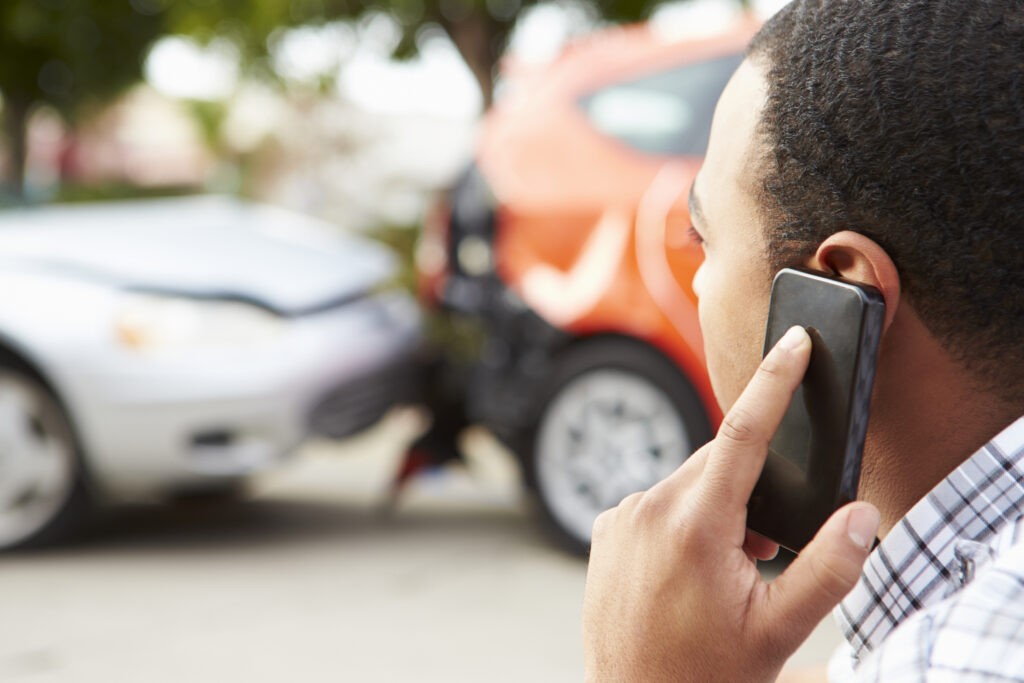I Was Rear-Ended By Another Driver – Now What Do I Do?
When You Get Hit by Another Driver, What You Do Next Can Be Critical
After a car accident, it’s easy to panic, become flustered, and have no idea what you’re supposed to do next. That’s because most of us don’t plan on being in a car accident, let alone prepare for what to do when it happens. Car accidents are traumatic and stressful. Even the smallest car accidents come with unexpected headaches like damage to your vehicle, injuries that may not become apparent until much later, and dealing with less than helpful insurance companies that are not always sympathetic. Often, from the moment you file an insurance claim, the insurance adjusters are under pressure to resolve your case as quickly and cheaply as possible.
What’s Good for the Insurance Company = Bad For You!
That’s why knowing what to do – and just as importantly what not to do – after you’ve been rear-ended can make a huge difference in how your claim is handled and the size of the settlement you receive. Here is what you should keep in mind after you have been rear-ended in a car accident.
Immediately Pull Off to a Safe Location
Regardless of where your accident occurs, your first priority should be getting to safety. This rule applies whether you are driving on a suburban road or with the masses of Alabama residents on their daily commute down Hwy 280. Pull off to the side of the road as soon as it is safe. Take a deep breath, remain calm, and assess the situation to make sure nobody in the car is visibly injured or in need of medical attention. Remaining in traffic, especially along a busy Alabama highway, can cause traffic jams or further accidents.

Call the Police
After an auto accident, Alabama law requires victims to call the police under Alabama Code Section 32-10-5 if any of the following conditions are present:
- Someone is visibly injured.
- Someone died.
While it’s not required, it’s always a good idea to call the Police if you think there is property damage in excess of $250. Remember, estimating the property damage to your car can be difficult, and it’s always possible it has suffered further damage you’re not aware of yet. That is why immediately notifying the police after getting rear-ended will aid in resolving your case.
Reporting an Alabama car accident to the police is also critically important when filing your insurance claim. Police officers will evaluate the scene, document how the accident occurred, obtain any witness information, and create a record of the car accident. This information can be vital to your settlement value. This is especially true if you suspect the other driver is legally intoxicated or otherwise impaired. Police officers are trained to deal with drunk and intoxicated drivers and ensure any potential intoxication on the other driver’s part is documented in the police report. Keep in mind: a drunk driver’s arrest or prosecution will not automatically provide compensation for your damages, injuries, or losses. You will still need to file an auto accident claim.
Gather All The Information You Can
From the moment you step out of your car, assume everything you do will affect your auto accident insurance claim. This may sound intimidating but consider it as an opportunity to resolve things quickly and effectively. This will save yourself from lots of headaches down the road. When the other driver is clearly at fault for the car accident, they are responsible for reporting the accident to their insurance provider. Do not assume the other driver will take care of things. It’s important to make sure your side of the accident is represented, so take a moment to write down a few notes about what happened. Your recollection of the accident immediately after it happened can be crucial to your insurance claim.
Once you’ve written down your notes, approach the other driver and calmly request the following information:
-
- Contact information for the other driver and anyone in their car, including name(s), address, and a phone number where you can reach them.
- The driver’s insurance policy number and the name of their insurance company.
- Collect any witness statements. If there are other drivers or pedestrians, it is helpful to collect their statements. This establishes an objective narrative of the events before, during, and after the accident.
- Take Photos of the accident scene, any injuries you sustained, the vehicles involved, and anything else that may be useful to your insurance claim. Photos are incredibly valuable to submit when you are filing an insurance claim after being rear-ended.

Get Medical Attention
Even if you’re unsure whether you were injured, getting medical attention after a rear-end collision in Alabama is essential. Remember, there is always the possibility you’ve suffered injuries that won’t manifest symptoms until days or even weeks later. Getting medical attention early increases your chances of catching any serious or long-term injuries earlier and gives you a better understanding of your recovery. It’s far better to know the full extent of any injuries you’ve sustained before any settlement is reached so you can be fully treated and compensated.
Documenting these injuries is perhaps the most critical element after you’ve been involved in a car accident. Insurance companies will employ many tactics to avoid covering medical expenses. They are notoriously reluctant to address potentially debilitating or long-term injuries. Having your medical expenses and medical injuries documented and inventoried by a medical professional increases your chances of getting offered a fair settlement.
File an Insurance Claim
Alabama car accident law is based on a “fault” system. This means the at-fault driver is typically responsible for any personal injury or property damage resulting from a car accident. Additionally, insurance companies will look at the at-fault driver’s insurance policy first to compensate for any injuries or property damage. When the other driver was at-fault, this means you will likely be resolving your claim through their insurance company. This is sometimes known as a “third-party claim” and in these instances, having an experienced personal injury attorney can make all the difference. Be prepared to provide your attorney with all the information you gathered after the accident such as witness statements, photographs, police reports, and medical documentation. These will greatly improve your chances of getting the best possible compensation.
Talk with a Personal Injury Attorney, It’s FREE.
Whether you hire a personal injury attorney to represent you can greatly affect the outcome of your case. It is estimated that the average person who hires an attorney to assist with their car accident obtains approximately 3 times (3x) the settlement amount of those that chose to represent themselves. The at fault driver’s insurance company will rarely offer you an appropriate settlement that fully compensates you for your property damage and injuries. Why would they, you’re not their insured! Instead, insurance companies will avoid paying fair compensation and continuously pressure you into settling for pennies on the dollar.
A Good Rule Of Them On Whether To Hire A Personal Injury Attorney. If the insurance company offers you a settlement amount that is too small to cover your medical bills, too small to cover any future medical treatment you need, or too small to cover the property damage to your vehicle you should talk to an experienced Alabama personal injury attorney immediately. Having an attorney on your side evens the playing field and gives you a much higher chance of getting the settlement you deserve.
Patrick Marshall Law has successfully represented countless personal injury, auto accident, trucking accident and drunk driving victims. We fight tirelessly to get our clients across Alabama and Georgia the settlements they deserve, and we will never settle for pennies on the dollar. Contact Patrick and his team today and see how we can make a difference in your personal injury case.
